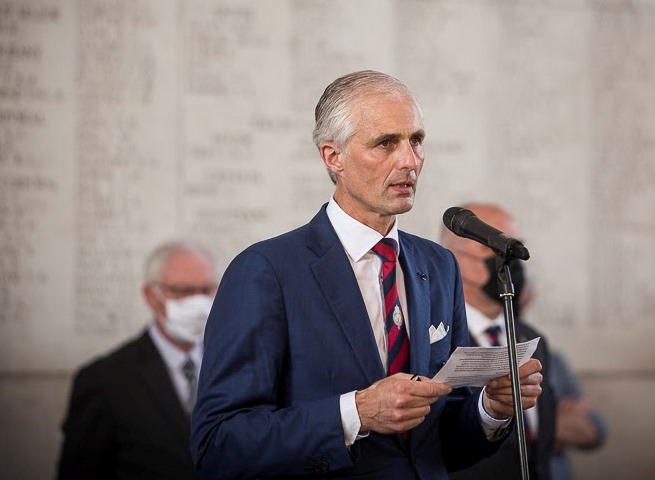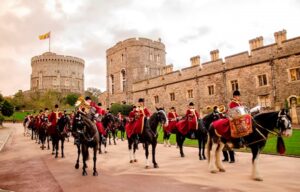
At the Imperial War Museum in London, a quote attributed to Plato reads, ‘Only the dead know the end of war.’ Sadly, recent history suggests that he might be right. This time last year, our thoughts were focused on Ukraine. Today, our minds are full of the terrible images emerging from Israel and Gaza. These are just two of the more than one hundred armed conflicts in the world today.
En dit zijn slechts twee van de meer dan honderd gewapende conflicten in de wereld vandaag.
Tegen deze achtergrond van geweld is het misschien niet onredelijk om te vragen welk doel een herdenking als deze dient.
Against this background it is not unreasonable to ask what purpose a service such as this serves.
Firstly, remembrance honors those who died as a mark of respect. Today, we gather to remember those who sacrificed their lives for our country.And, that, first and foremost, is why we are here today: to remember those who died for their country and in defence of ours.
Maar natuurlijk is herdenken veel meer dan dat. We herinneren ons niet alleen het feit dat ze stierven. We herinneren ons ook hoe ze leefden. En de redenen waarvoor ze bereid waren te sterven.
The First World War that we commemorate here ensured that our country would be free. The Second World War ensured that all Europe would be free.
In that sense, both these wars could be said to have been necessary.
At the same time, we must also remember the words of former American president Jimmy Carter: ‘No matter how necessary war sometimes is, it is always an evil, never a good. We will not learn to live together in peace by killing each other’s children.’
But if remembrance is something that looks back to the past, it also gives us hope for the future. All wars eventually come to an end and this offers the prospect of a new beginning.
De impact van oorlog is zo dramatisch dat het altijd een verlangen naar verandering genereert. En hoe meer mensen van goede wil zoals wij hier vandaag ons engagement tonen voor waarden als vrede, rechtvaardigheid en democratie, des te groter is de kans dat dergelijke verandering ten goede zal zijn.
It would be naïve to think that our presence here in Ieper will have any direct impact on any of the one hundred conflicts. The emotions of those involved are too raw for us to understand and for them to see the light of what we regard as reason. But if we cannot affect the war, people of goodwill everywhere can help to affect the peace. It will be a slow process and it will not happen tomorrow, but perhaps one day it will not only be the dead who know the end of war, but also the living.

Elke dag om 20.00 uur ‘s avonds. Het dagelijks eerbetoon.






Deel op
Vul het formulier in om de nieuwsbrief van de Last Post Association op regelmatige basis te ontvangen.
Last Post
Association